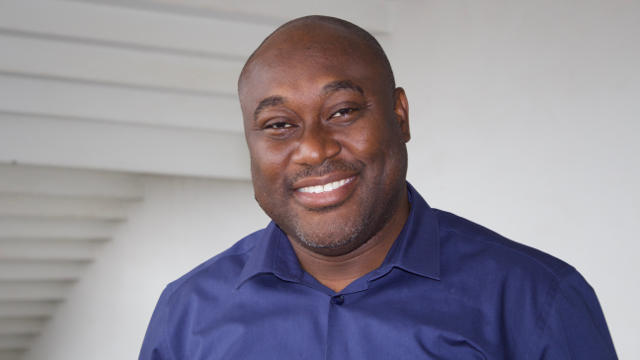The Director of the West African Center for Cell Biology of Infectious Pathogens (WACCBIP) has advised people who are fully vaccinated to keep their face masks on.
According to Prof Gordon Awandare, because the vaccination rate in the country is very low, vaccinated persons who do not adhere to the safety protocols could put non-vaccinated people at risk of contracting the virus.
Speaking on The Probe on JoyNews, he said, “at the moment, we are talking about less than 5% of the population being vaccinated, so even though one may be fully vaccinated, it is only a small percentage, of the entire population that have received the full dosage.”
“So it is advisable that we still keep the masks on because so many other people are not vaccinated yet and you could be carrying the virus,” the WACCBIP director told Emefa Apawu, host of the Show.
Prof Awandare said that some countries like the US and Belgium have approved no masks wearing in some places for vaccinated people because of the high rate of vaccination there.
His comment comes after concerns were raised over a possible third wave of Covid-19 hitting Ghana. The concerns have increased after the national vaccination plan was hit by non-availability of vaccines due to delays in acquiring more doses.
In the absence of vaccines to continue the exercise and the risk resulting from the delay, Prof Awandare, stated that vaccinated people need to keep their masks on for their own benefit.
He explained that fully vaccinated people in some countries are getting infected by new Covid-19 variants that are emerging.
“It is going on in Seychelles where vaccine coverage is over 60% but infections rates are going up. That is likely because of the types of variants they have there as against the vaccines they have used. So, if the vaccine is not very effective against the variants in circulation, then you have a problem,” he said.
Prof Awandare added that as the country seeks to purchase new vaccines, it should procure vaccines that are effective against the aggressive variants.
"We have been fortunate that the more aggressive variants, which is, the South African and the Indian ones, haven't taken root in the local transmission, so we've mainly found these in travelers. We need to maintain that. That means the mandatory quarantine we are doing at the airport needs to be maintained."
"I think that we need to be focusing on getting the Pfizer, the Moderna, those other vaccines that are effective against the more aggressive variants, because it is inevitable that we get to a point where they start to take roots locally."
Latest Stories
-
Ghana Fact-checking Coalition condemns disinformation on voting by Wontumi FM broadcaster
1 second -
IFRS 17 will augment and accelerate NIC’s efforts to implement risk-based capital – Deloitte
2 mins -
IFRS 17 is one of biggest changes to financial reporting standards in insurance industry – Deloitte
16 mins -
Enimil Ashon: Whose polls do you believe: ‘Global Info or Prof Sarpong?
18 mins -
Ghana Climate Innovation Centre welcomes 25 businesses into Cohort 10
23 mins -
ADB will continue to enhance customer value and service experience – Managing Director
25 mins -
Colour Cure Exhibition highlights art’s role in healing and advocacy
27 mins -
GPL 2024/25: Aduana FC sack coach Yaw Acheampong after poor run
30 mins -
John Dumelo pays ¢10,400 in outstanding fees for visually impaired law student facing deferral
31 mins -
CHRAJ clears Rev. Kusi Boateng of conflict of interest, says he doesn’t own 2 passports with different names
35 mins -
We’ll restore hope by cutting down taxes and avoiding unreasonable borrowing – Ato Forson
39 mins -
14th Edition of Tech in Ghana Conference launched in Accra
40 mins -
Manifesto clash: NPP, NDC spar over water, hygiene, sanitation and climate change
46 mins -
Ellembelle MP constructs new health facility at Santaso to serve several communities
50 mins -
Kwasi Appiah wanted to axe Ayew brothers and Wakaso from Black Stars – Ernest Thompson reveals
58 mins

